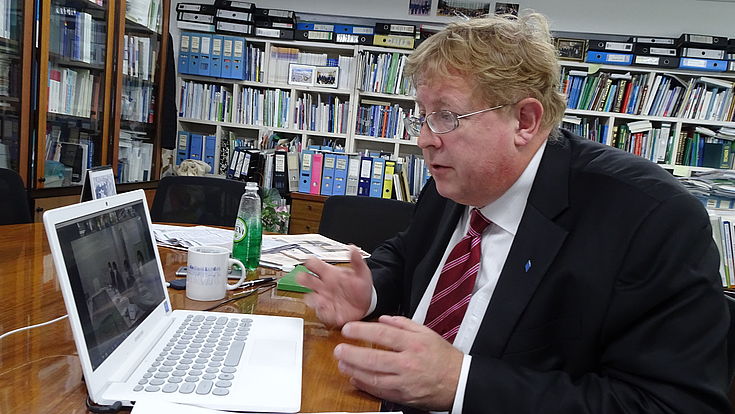Online Forum
Preservation and Utilization of DMZ Peace Border

Two presentations were consecutively made to discuss ideas and policy tasks for interchange and cooperation projects in the Gyeonggi Province border area. Han Bum Cho, a researcher at the Korea Institute for National Unification, gave the first presentation on “Tasks and Initiatives to Make the DMZ a Peace Zone.” He cited the German Green Belt as an example, noting the international value of the DMZ. In order to landmark DMZ, he proposed to establish a Korean Peninsula Peace Center and World Peace Park in the Gyeonggi Province. Furthermore, he proposed to create a U.N. organization that combines the concept of environment protection and peace and attract international organizations, ultimately linking them to the Green New Deal model. In the political sector, he suggested mapping ways to protect and utilize DMZ, establish a special DMZ committee, organize festival culture, and equalize the cost of division.
The second presentation was held by Eun-jin Park, director of the National Institute of Ecology, and dealt with “Promoting the DMZ Ecological Conservation Strategy and Resolutions.” She first highlighted the ecological value of the DMZ by explaining why it is drawing attention globally. Moreover, among the restrictions analyzed to devise ways to preserve and utilize the DMZ, the establishment of a legal system for space management and regional participation was emphasized. She argued that the DMZ should be managed into four sections depending on its ecological value. Since the habitats of endangered species are different, the designation of protected areas should be expanded and the DMZ should be designated as a national ecological axis. She added that a legal basis is necessary and more ecological research should be conducted. Director Park further put emphasis on environmental benefits and rewards because regional participation and raising nature conservation awareness are crucial and should be promoted.
After the presentations, professionals from different institutes including the National Institute of Ecology, DMZ Ecology Research Institute, Gyeonggi Province DMZ, and Hanns Seidel Foundation, briefly shared their views on the proposals. Although many positively viewed landmarking DMZ and establishing such a system, they also agreed it could be idealistic and long-termed. Referring to the East German case of restricting access from the West, Dr. Seliger argued that North Korea would not welcome a unilateral offer from South Korea. He added that building the DMZ peace institute was not essential but would only harm the ecosystem. Above all, Dr. Seliger stressed the need for communication with North Korea such as periodic cultural meetings and cooperation under common interests like environmental preservation.

The discussion also covered regional economic development and benefits. Discussants agreed that active participation and positive awareness of the DMZ residents are essential to preserve the ecosystem and establish peace facilities. Dr. Seliger suggested that the Korean government could provide incentives to the locals like the German government does, paying farmers who contribute to the environment. Sook Kyung Shim, a member of the National Institute of Ecology, pointed out that Korea does have a similar policy but requires support from the government to prevent regional destruction and conflict. Finally, Soon Hak Hong, head of the DMZ division in Gyeonggi Province, wrapped up the forum to an end by promising to propose and establish suggested policies and projects presented in the forum.
